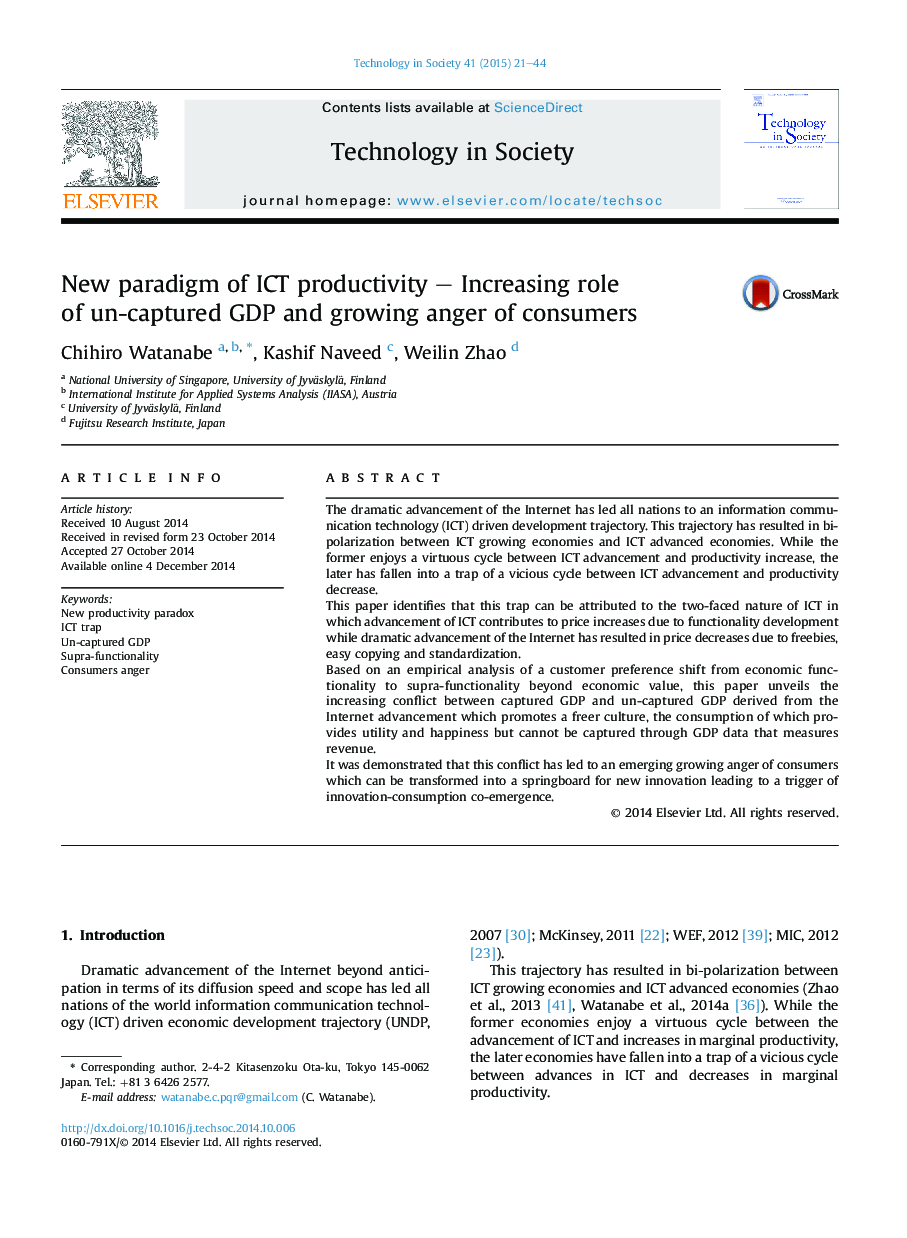| Article ID | Journal | Published Year | Pages | File Type |
|---|---|---|---|---|
| 375168 | Technology in Society | 2015 | 24 Pages |
•ICT derived bi-polarization in 100 countries and 500 global firms was unveiled.•Trap of ICT advancement due to two-faced nature of ICT was elucidated.•Consumer preference shift increased captured GDP and un-captured GDP discrepancy.•Consumers anger derived from conflict was demonstrated which can be transformed into a springboard for new innovation.•This study is expected to explore significant insight in the institutional sources of resilience in the transition.
The dramatic advancement of the Internet has led all nations to an information communication technology (ICT) driven development trajectory. This trajectory has resulted in bi-polarization between ICT growing economies and ICT advanced economies. While the former enjoys a virtuous cycle between ICT advancement and productivity increase, the later has fallen into a trap of a vicious cycle between ICT advancement and productivity decrease.This paper identifies that this trap can be attributed to the two-faced nature of ICT in which advancement of ICT contributes to price increases due to functionality development while dramatic advancement of the Internet has resulted in price decreases due to freebies, easy copying and standardization.Based on an empirical analysis of a customer preference shift from economic functionality to supra-functionality beyond economic value, this paper unveils the increasing conflict between captured GDP and un-captured GDP derived from the Internet advancement which promotes a freer culture, the consumption of which provides utility and happiness but cannot be captured through GDP data that measures revenue.It was demonstrated that this conflict has led to an emerging growing anger of consumers which can be transformed into a springboard for new innovation leading to a trigger of innovation-consumption co-emergence.
